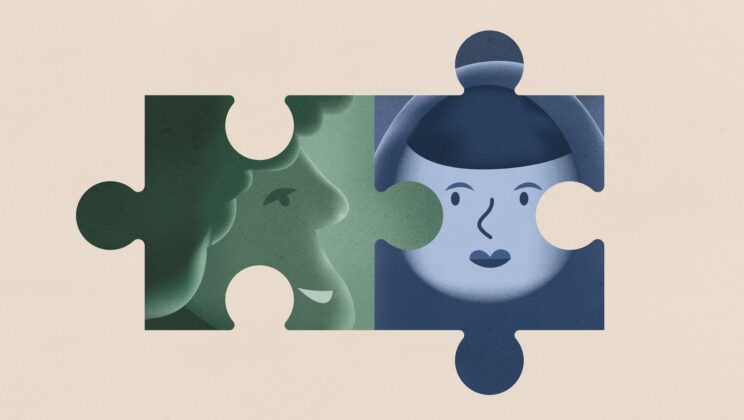Breaking the Cycle: Overcoming Chronic Pain and Depression
July 1, 2024
The power of the mind-body connection is undeniable, and one way it’s clear is in the link between chronic pain and depression. One in five people are affected by chronic pain and up to 85% of them experience severe depression. But there’s hope and healing in using a holistic approach that treats chronic pain and mental health together.
The link between chronic pain and depression
“As a society, pain is often viewed as a physical experience, and depression is viewed as an emotional experience,” said Lauren Cunningham, PhD, senior manager of clinical quality at Lyra Health. “But clinical studies demonstrate that chronic pain and mental health concerns are actually closely related.”
Without the right medical and mental health support, depression and chronic pain can create a cycle of physical and emotional distress. Discomfort and an inability to fully participate in activities you enjoy can understandably lead to feelings of frustration and irritability.
Similarly, depression can involve physical symptoms that contribute to chronic pain. Depression symptoms like fatigue, reduced activity, and challenges with self-care may make your body less resilient to injury or pain. Depression can also influence brain chemicals tied to pain perception which can heighten your sensitivity to physical discomfort.
Chronic pain isn’t just linked to depression. Researchers have also found ties between PTSD and chronic pain, chronic pain and anxiety, and chronic pain and ADHD.
Chronic pain and connected mental health conditions
Some pain conditions that can intertwine with depression and other mental health conditions include:
- Arthritis - Inflammation of joints can limit daily functioning, potentially fueling depression.
- Fibromyalgia - Touch or movement causes pain and an increased risk of anxiety disorders like obsessive-compulsive disorder (OCD).
- Multiple sclerosis (MS) - People with MS have an increased risk of major depressive disorder and anxiety due to disrupted nerve communication.
- Back pain - Often comes with a higher risk for major depression and prolonged depressive symptoms.
- Chronic migraines - The unpredictability of migraines can spur anxiety and disrupt daily life.
- Menstruation-related pain - Extreme pelvic pain can lead to feelings of helplessness and depression, compounded by anxiety about the unpredictability of the menstrual cycle.
4 treatments for depression and chronic pain
Caring for the body and mind together is key to breaking the chronic pain cycle. An integrated approach to treating chronic pain and depression provides the hope and healing so many need. Holistic treatment for depression and chronic pain may include:
#1 Behavioral therapy
Behavioral therapies such as cognitive behavioral therapy (CBT) teach you to change thoughts, behaviors, and emotions associated with chronic pain and depression. For example, CBT can help you transform thoughts like these:
- “I can’t do anything because of my pain” to "While my pain limits some activities, I can find other ways to do activities I care about, even if they need to be adapted or done in smaller increments.”
- “My pain will never improve" to "It’s challenging right now, but it won’t always be like this. Improvement takes time, but I can take steps towards managing and reducing my pain."
- "Why does this pain always have to ruin everything?” to “It’s frustrating to deal with pain, but I can acknowledge my feelings without letting them overwhelm me and focus on what I can control.”
#2 Stress reduction and relaxation
Relaxation techniques, such as deep breathing or progressive muscle relaxation, can help alleviate tension and reduce pain.
#3 Lifestyle changes
Self-care like eating nutritious food, getting enough sleep, exercising regularly, practicing mindfulness, and limiting substance use can improve chronic pain and mental health.
#4 Medication
Medication can help with both chronic pain and depression symptoms. To maximize effectiveness, medications for depression and chronic pain should be paired with behavioral therapy.
How chronic pain and depression impact the workplace
Chronic pain and depression can impact your personal and professional lives. If you’re living with chronic pain and depression, here are some ways you can manage your symptoms at work:
- Consider a medical exemption that you provide to your HR department and to your manager about your condition so your employer can accommodate your needs
- Take short breaks throughout the day
- Request more flexibility in your work schedule
- Prioritize self-care
- Get treatment
Live the life you deserve
Depression and chronic pain don’t define you. With the right treatment and support, you can live a life where comfort, joy, and fulfillment aren’t just possibilities, but are well within reach.
Get professional support for your mental health
You can get started today if your employer offers Lyra.
Author
The Lyra Team
The Lyra Team is made up of clinicians, writers, and experts who are passionate about mental health and workplace well-being. With backgrounds in clinical psychology, journalism, content strategy, and product marketing, we create research-backed content to help individuals and organizations improve workforce mental health.
Reviewer
Lauren Cunnningham
Dr. Cunningham has over a decade of clinical and administrative behavioral health experience. She received a doctoral degree in counseling psychology from Ball State University and has authored publications on crisis prevention in schools and sexism toward women in the military. Previously, she held several mental health-focused roles in the United States Air Force, receiving many honors including the Air Force Commendation Medal for Meritorious Service and the Air Force Achievement Medal. She also served as CEO of Blackbird Psychological Services, providing and supervising psychological evaluations for the Department of Defense and Veterans.
Explore additional blogs

Mental health treatment
How Chronic Illness and Mental Health Intersect

Mental health treatment
Should I Go to Therapy? How to Know if It’s Right for You

Mental health treatment